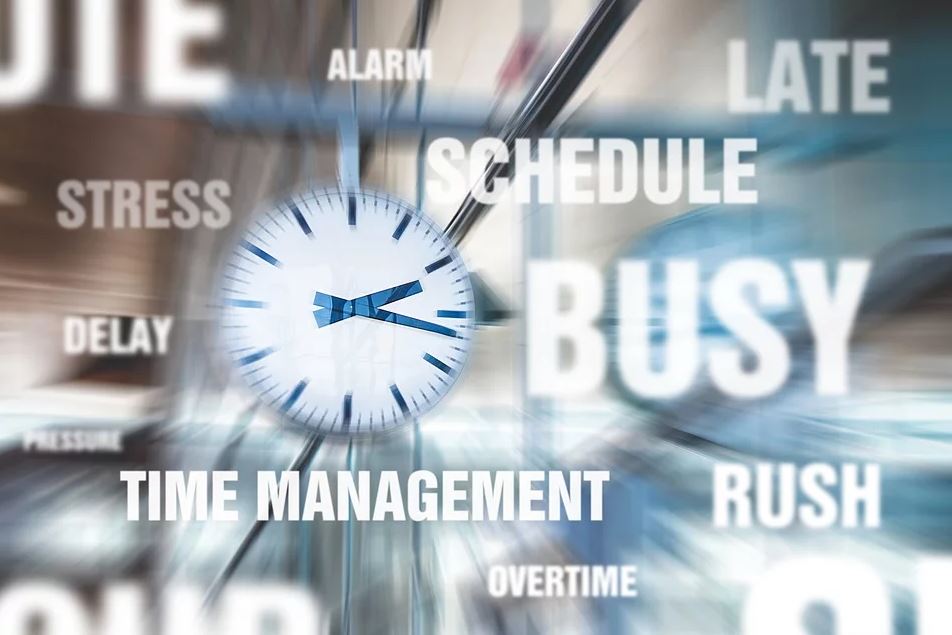Good time management strategies result in high productivity which eventually translates to more revenue. There are only 24 hours in the day; getting a handle on how you spend your time will naturally increase your potential for profit.

1. Create and stick to a morning routine
Flexibility is important in business, but sometimes a rigid routine is necessary. Establishing and following a morning routine without deviation is a foundational time management strategy. The absence of a morning routine might be the biggest time-waster next to spending too much time on social media.
Routines do more than get you to work on time
When you wake up late, even if you’re able to scramble and make it out the door on time, your mind will suffer. Without a routine, you might get to work on time, but at the expense of your mental health.
For instance, you might skip breakfast, forget to feed your cat, forget your own lunch, or leave the house feeling disorganized. Leaving the house feeling disjointed and hungry is likely to infiltrate the rest of your day, including interactions with your boss and coworkers.
All you need is a simple routine to be effective. Rather than trying to cram your morning into an arbitrary time slot, figure out how much time you actually need to get ready and out the door. Then, set your morning alarm based on the time you need to get ready, not the time you want to wake up. If you need more sleep after making this adjustment, go to bed a little earlier.
2. Don’t take unscheduled calls or meetings
Nothing puts a damper on productivity like having your attention diverted from your projects multiple times throughout the day. How many times do you answer calls from people you weren’t expecting to hear from? How many times in the day do you have a “quick meeting” with someone who taps you on the shoulder?
Unexpected meetings and calls are draining your energy, time, and focus. Commonly known as “task switching,” the act of switching your focus between two different contexts is perhaps the biggest productivity killer of all.
Switching your focus from your current task to something entirely different is exhausting because it takes about 25-30 minutes to fully switch gears. Your brain can’t handle the constant back-and-forth. When you switch between tasks too many times, you’ll eventually run out of steam to finish your day and your project will suffer.
You can stop this drain of energy by refusing to take unscheduled phone calls or meetings and train people to respect this request by not giving in when they want to be the exception.
How to request scheduled calls
The first thing you need to do is to let people know you need all meetings and calls written into your daily schedule. Ask that people give you at least 24 hours advanced notice so you can plan your day efficiently rather than accommodating last-minute needs. Let people know that by planning 24 hours in advance, the call or meeting will be more productive.
You’ll run into some resistance by asking others to respect this rule. Most people don’t understand why they can’t just borrow you for a quick minute, so make sure people understand the impact these unscheduled calls and meetings have on you. You can also tell people that scheduling them guarantees your full attention.
3. Require an agenda for all calls and meetings
Meetings can be a huge source of wasted time. Without an agenda, it’s almost guaranteed that a meeting will run much longer than necessary without achieving the right goals.
If you’re an employee, you may not have control over meeting agendas. However, if you’re leading calls and meetings – or have any pull with those who lead – make sure everyone gets an agenda prior to the meeting. If you think that the task is complicated or you get distracted often you can always make use of free time tracking and invoicing tools available to have better control.
Having an agenda for a meeting does several things. An agenda helps participants prepare to share information and ask questions during the meeting, it keeps participants on topic, and sets boundaries for the meeting not to drag on.
Are you ready to have more time in your day?
While these time management strategies won’t add more hours to the day, becoming more efficient with your time will free up more hours in the day for you to either work with or play with.
